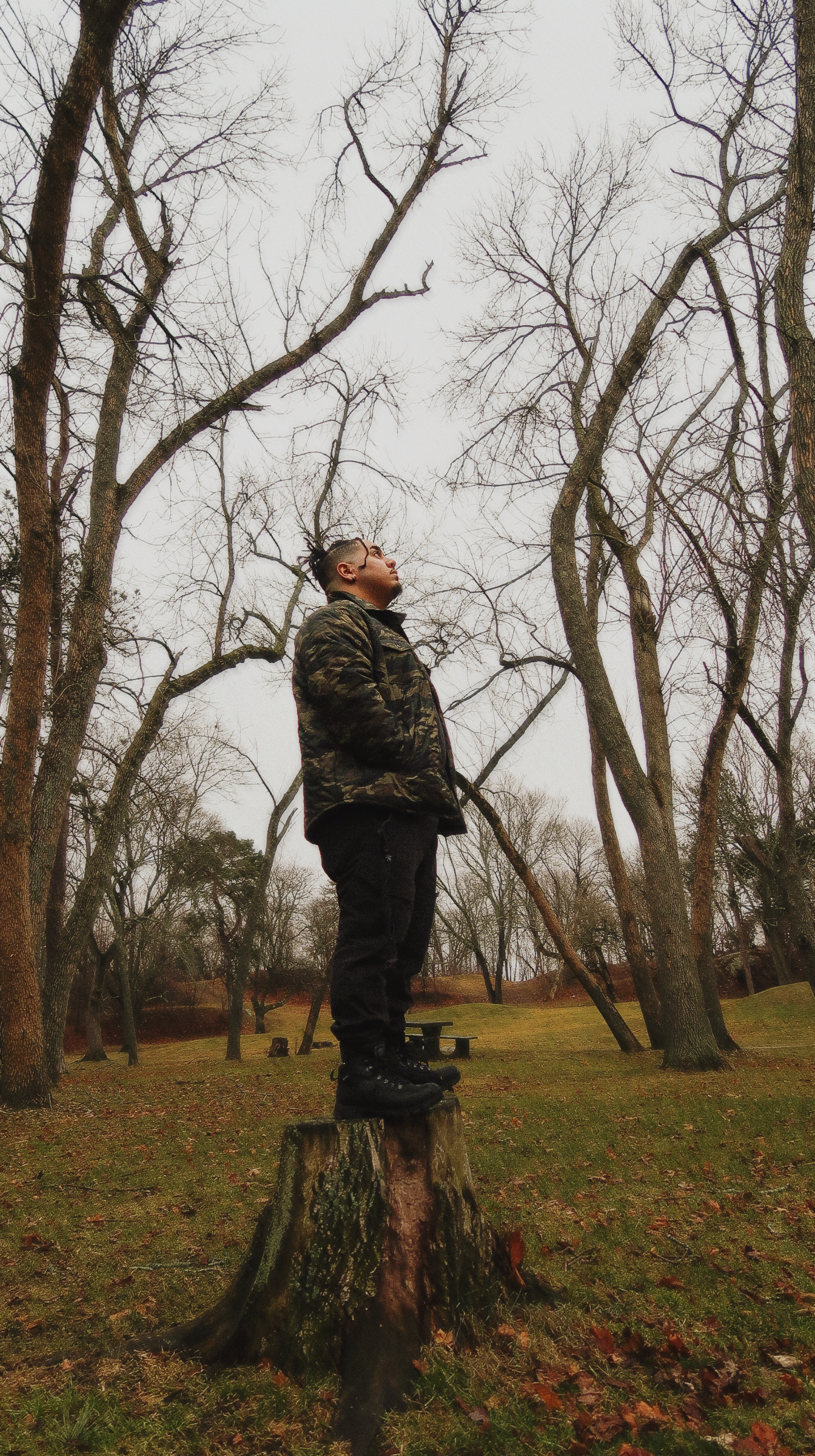by alex grainger
photo by gavin wallace
Abington Grove is a sonic glimpse into a “small frosted window that looks into” the brain of Billy Lockett. Music is healing and for Lockett, his debut album gave him the opportunity to spill the contents of his mind into songwriting and offered his life a sense of purpose. Abington Grove, written in and named after his childhood home, was years in the making and acted as a vehicle of therapy. The process began while Lockett was still in the depth of a drug addiction, but as he began to love his work, he was able to become clean. He’s now happy, healthy, and after spending his life trying to find who he is, Billy reveals, “now I’m just me.”
Cleverly, Lockett opens with “Hard Act To Follow” a song listener’s have known and loved for years, but don’t get too comfortable. Lockett let go of control and allowed each song to lead, which naturally composes an album of sounds only defined by ups and downs. Each lyric and beat are not only a piece of his candid story but are laced with such heavy emotion. Abington Grove is the product of an inspiring story of a musician who was lost for so long and is now fulfilled, has found his sound, is finally living in the present, and again is truly happy. Read more about Billy Lockett and Abington Grove below!
Abington Grove is a journey through the many stages of your life from love, addiction, self-doubt, and euphoria. Can you tell us a little more about the story you are sharing through the album?
Billy: “Yes, no problem. Ao the spine of the album is around mental health generally speaking. I think each song represents a difficult situation and how I dealt with it in my mind. I kinda intentionally mixed the happy and sad songs closely together to give the listener an up and down feel similar to how your brain is day to day. For me personally, one day I can be in a great mood and the next I’m on deaths door, sometimes for no reason. This album is basically a small frosted window that looks inside my brain.”
You mention how creating Abington Grove has been therapy. What role did this album play in overcoming and healing your addiction?
Billy: “Yes, this album has been a huge help! Lyrically, because I could get everything out of my head and lifestyle wise it has given me a purpose. It gave me something worth doing instead of drugs. As the album was created over such a long time, some of the songs were made whilst I was still on drugs but throughout the process it started getting easier. I think when I started loving my work I started to get happier and that made getting clean easier. Obviously it’s not the same for everyone, but for me personally when I love what I’m creating, doing everything else in life feels easy. When I don’t, or I’m searching for something that works, it can be a tough hole to climb out of, but it’s all part of the process.”
Abington Grove was written in your childhood home. You mention how “partying was the routine” in your house growing up and that you’ve experienced dark times in your family’s home. Why was it so important for you to settle back in your childhood home to create this album? How if at all did it heal you? How does your childhood work its way into the message and sound of the album?
Billy: “Abington Grove was the house I grew up in so there are a lot of memories. My dad was a party animal but he was many other things, both good and bad. We had a very strange relationship. My mum and dad broke up when I was eight and from then on it was just me and my dad. From that day on we were more like two mates living together, until he started drinking heavily, got cancer and things became very ugly from about 16 onwards. He was an incredible, talented, funny, kind, brilliant man but a terrible parent and could be a real monster sometimes. So the house is him, us, everything. It couldn’t be called anything else in my eyes.”
You touch on how after connecting and working with Barney Cox, you finally had fun making music. Can you walk us through the collaborative creative process? What does it mean to you being able to create the music you’ve always dreamt of creating?
Billy: “Yeah, finding a good producer is everything! I’ve struggled for a long time to find the right guy, but Barney is that for me. I can’t see myself making music with anyone else for a long time. He makes the whole process feel fun, and when it’s fun, it’s easy. It’s a total dream come true creating music I love, my managers and label let me have complete creative control so life really does feel great at the moment.”
How did you find your sound? How do you feel Abington Grove represents your own sound as an artist?
Billy: “So the main thing I love about Abington Grove is it doesn’t have a sound, or at least if it does it was totally unintentional. I just went wherever the song wanted to go. Working with Barney taught me to let the song tell me what to do. Trying things, changing things, tweaking tiny bits here and there for months. I really miss making music actually, I can’t wait to get working on the next album and this one’s only just come out! [laughs]”
Abington Grove opens with the new version of “Hard Act To Follow.” Why is it important for you to open the album with this track’s message and sound?
Billy: “‘Hard Act To Follow’ was always my ‘big’ song in the early days so I felt it was only right to bring it back at the start. I think Goldlink really adds a great feel to the song too. I also like the idea of starting on a song everyone assumes the album will be like and then pushing everyone straight off a cliff with the second track ‘Not Okay’ to kind of say ‘time for a new Lockett.’”
“Not Okay” is your favorite song off the album. Can you tell us a little more about what makes this track so special?
Billy: “‘Not Okay’ is a ‘how far can I go’ in terms of sound, I just wanted to make something that packs a punch. Notoriously my ‘big sounding, big production’ songs don’t work as well as the piano stuff with the fans, but with this one I just wanted to make something huge and angry. [laughs]”
“Don’t Worry” allowed you to create a track of hope and positivity. The same pop-radiant sounds find their way into various other songs throughout the album. Why was it important you include more sonically upbeat tracks such as “Sushi” and “Freaking Out?”
Billy: “I think, again, I never really aimed to make an upbeat or down beat track, it was kinda just how the songs wanted to go. ‘Freaking Out’ just made sense as an upbeat track and ‘Last Thing On Your Mind’ made sense as a ballad. Believe me when I say we always tried both ballad and upbeat versions of every song but it always seemed kinda obvious sonically which was which.”
“Don’t Be So Hard On Yourself” closes Abington Grove. What makes this song the perfect end to such a vulnerable story and album?
Billy: “Yeahhhh, I love this song, I wanted to end on a positive note because after listening to the whole album of ups and down, at the end of the day you can only do your best and that song is about saying that doing your best is enough and you are enough.”
Once the album was complete, you asked yourself “now what?” How are you feeling after the album’s release?
Billy: “Yeah, that's very true. The ‘now what’ thing is tough, but luckily it’s been a success so I’m incredibly grateful to have so much work coming in. It’s been a long journey to make this so I’m just embracing the promotion of it. It’s a nice feeling to finally be able to share it with everyone.”
Now it’s my turn to ask, “now what?” What can we expect from you in the coming months?
Billy: “Now I’m just going to be doing promo and touring as many places as I possibly can.”





